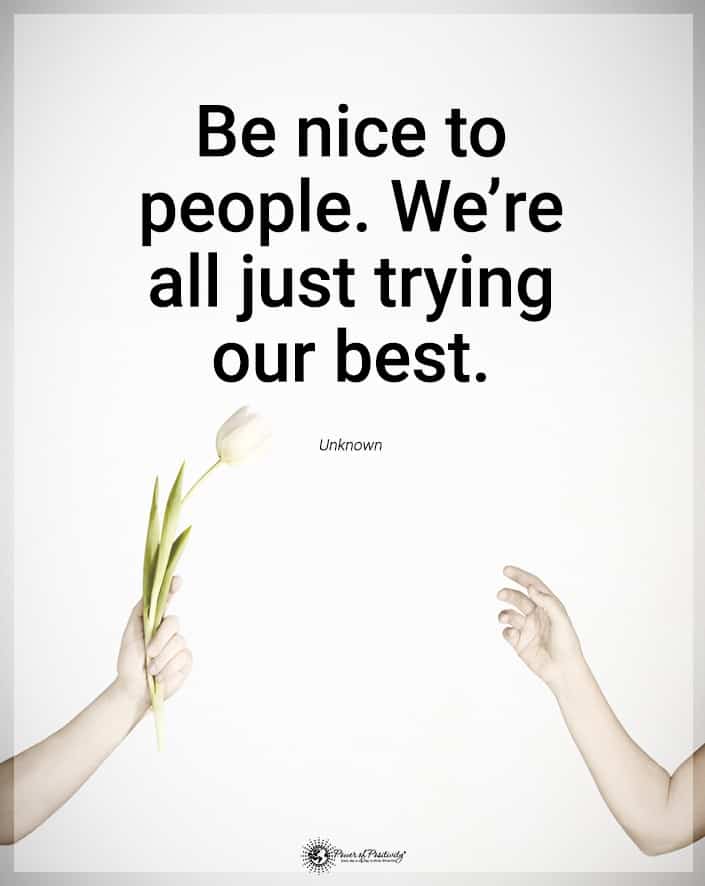If you want to be a functional member of society, you need to take on a lot of responsibilities and leave aside nervousness. However, this can become very tiring after a while. You spend most of your time working or going to school, and there’s always a lot of pressure on your shoulders. And even if your life isn’t as busy, you can still feel under a lot of pressure because there will always be things you’ll have to handle, like family issues.
Even if you aren’t under a lot of pressure daily, you can still feel stress from other areas in your life. Maybe you excel in your work life, but your social life stresses you out. Whatever the source may be, everyone experiences stress in their life. Perhaps you are one of the lucky ones that don’t get stressed every day over even the littlest of things.
But even in that case, you won’t be able to avoid stress forever. And, when people are under a lot of pressure, the most natural response is to become nervous. Most people freeze when they start feeling the pressure. They get overwhelmed, their heart starts beating like crazy, and they can’t seem to be able to do anything useful anymore.
But nervousness doesn’t need to be like this. It doesn’t need to stop you from taking on routine tasks. If you use it in your favor, it can make you more productive.
What Is Nervousness?
Nervousness is often conflated with the idea of anxiety, and the terms are used interchangeably. But, in reality, anxiety refers to a disorder, while nervousness is just a natural reaction to stress. The terms have been used as synonyms for so long that some people can’t differentiate the terms. If you find yourself thinking, “this task is giving me so much anxiety,” chances are you are feeling nervous.
Nervousness is a normal response to a stressful situation. When you deal with something important, like giving a presentation, and your stress levels are high, you will feel nervous. When you feel uneasy, your hands get sweaty. Your mouth is dry, and your heart beats fast. You might feel like you aren’t ready for the task or aren’t good enough to do what you have to do.
These feelings are very uncomfortable, and they can feel uncontrollable. The good part is that these feelings go away when you get the stressful situation done. Anxiety is much deeper than that. It’s a disorder, meaning that it doesn’t just go away. It’s something that you have to deal with daily. It might feel like you are living in a constant state of dread. Nervousness and anxiety can seem very similar in action.
Anxious people always get feelings of self-doubt, and they can get the physical symptoms of sweaty palms and dry mouth. But you could argue that nervousness is more like a symptom of anxiety than anything else. Nervousness is a fleeting response to stress. Anxiety is a disorder that you have to deal with every second of every day. That’s the main difference between the terms. Still, don’t be surprised to hear people referring to their nervousness as “anxiety.”
6 Reasons Why Nervousness Can Be Productive
Here are six times your nerves can help you succeed.
1. Nervousness Can Be An Adrenaline Booster
When you get nervous, your brain pumps adrenaline into your body. That’s why your heart starts racing, and your hands get sweaty. Adrenaline can keep you on edge, and it can help you focus on the task at hand.
Too much adrenaline can be a bad thing. It can overwhelm you and make you feel like you’re frozen in place. But, when you feel that adrenaline rush, the key is to stay on top of it. Take hold of your feelings and try to control the adrenaline instead of letting it control you.
Breathe, focus, and keep your mind clear of all distractions. This way, you can use that adrenaline as motivation. Studies even show that an increased level of stress hormones can elevate your learning capabilities.
2. Reframe Your Nervousness Into Excitement
Most people seem to think that nervousness is inherently a bad thing. That you can never get over your nerves unless you try to calm down. But researchers seem to disagree. They suggest that reframing your nervousness is better, especially if you want to be productive.
Alison Wood Brooks from Harvard Business School advocates for “anxious reappraisal.” Instead of trying to calm down, accept your feelings and try to reframe them. Nervousness feels an awful lot like excitement. The main difference is how you frame your feelings. In both cases, your heart races, and your adrenaline is pumping.
As long as you accept how you feel, you can control how you use those feelings. Don’t fight the adrenaline; instead, use it positively. Use that rush to give you the energy you need when you have something to do. Trick your brain into thinking you are excited, and you’ll find that you want to start being productive.
3. Use It To Pinpoint What Scares You
When you’re nervous, it doesn’t happen for no reason. It happens because you care about getting something right, and you’re scared of failing. This fear can be irrational or have some logic behind it. Maybe you’re nervous because you didn’t prepare enough for what you’re about to take on.
Whether the fear is rational or not, it’s holding you back. And it’s something you need to get over if you want to be more confident and productive. Keep track of when you get nervous and why. When you start seeing a pattern, that’s when you can understand what triggered those feelings. Once you pinpoint your fears, you can start working on them. And, when you get over your fears, that’s when they’ll stop getting in your way.
4. Nervousness Helps You Focus On What You Can Control
When you feel nervous, part of that is because you feel like the world is spiraling out of control. But that’s not actually what’s going on. As long as you make a conscious effort, it can be easier to focus on what you can control in those moments.
When you feel nervous, you are stressed precisely about the things out of your control. So, you need to pinpoint what makes you feel calm in all of that madness. Those are the things you can control, and as long as you focus on them, you can use them to your advantage. Forget about what you can’t control.
Forget about what’s out of your reach. Let the nerves guide you towards certain things and use those things to your advantage. If you need to present something or take an exam, maybe you won’t do it perfectly, but you don’t need to. You need to focus on doing the best you can. Use the skills you have to make the best out of any situation.
5. It Can Be An Incentive To Reflect
People don’t usually feel like it’s important to reflect on their choices and how their life is going. But, when you start feeling nervous and overwhelmed, that can be a signal that something’s up. And it can be an incentive to reflect and think about what’s going on in your head.
When you feel the most nervous, that can be the perfect time to take a deep breath and think about everything that’s happening. Reflection will always help you understand better what’s making you feel the way you think. If you know why you react the way you do and what your triggers are, you can use that knowledge in the future.
You can start avoiding the situations that make you feel uncomfortable. And if you want to be genuinely productive, you can start working on your triggers to make sure you won’t get nervous in the future. Reflection can uncover some issues that you need to work on to become a better person.
6. Nervousness Can Be A Strong Motivator
When you feel nervous or anxious about a task, this can push you to get things done. But that’s not always the case. It depends on using those nerves because they won’t inherently motivate you. In some cases, nerves can cripple you. But that’s only if you let them.
Research suggests that “anxiety motivation” is a real thing that improves productivity. But tats because they don’t associate nervousness with adverse outcomes. Instead, they use those nerves as a reminder as to why it’s essential to get things done. That’s why your outlook on your emotions is so important.
It can make the difference between being afraid or being motivated. Look at nerves as an emotion that you don’t like and that you want to avoid by being prepared for anything if you’re motivated.
Final Thoughts On Why Nervousness Can Be Productive
Everyone gets nervous from time to time. Some people are afraid of the feeling, but others have learned how to thrive in a stress-filled environment. And, because there’s no way you can avoid feeling nervous in certain situations, the best thing you can do is learn to deal with it. Learn how to use those nerves to become more productive instead of letting them take over you.
Nerves come from stress. And, when people feel stressed, their brain releases adrenaline and stress hormones. Those hormones can give you the boost you need to get through a task. Nerves can also show you your fears or other underlying issues you need to solve. And when you figure out why you get nervous, you can start working on those issues. And, if you can’t solve everything that’s going wrong, you can still reframe your nerves.
Try to look at nervousness as excitement, like you’re looking forward to the task you’re about to take on. This can trick your brain into being productive. And, potentially, the best thing you can do is accept your feelings for what they are and use them as a motivator. Many people use something known as “anxiety motivation” to get the end goal they want and to avoid feeling nervous in the future. Even though nerves can seem scary, if you know how to use them, they can help you be a lot more productive than you usually are.

















 Community
Community

